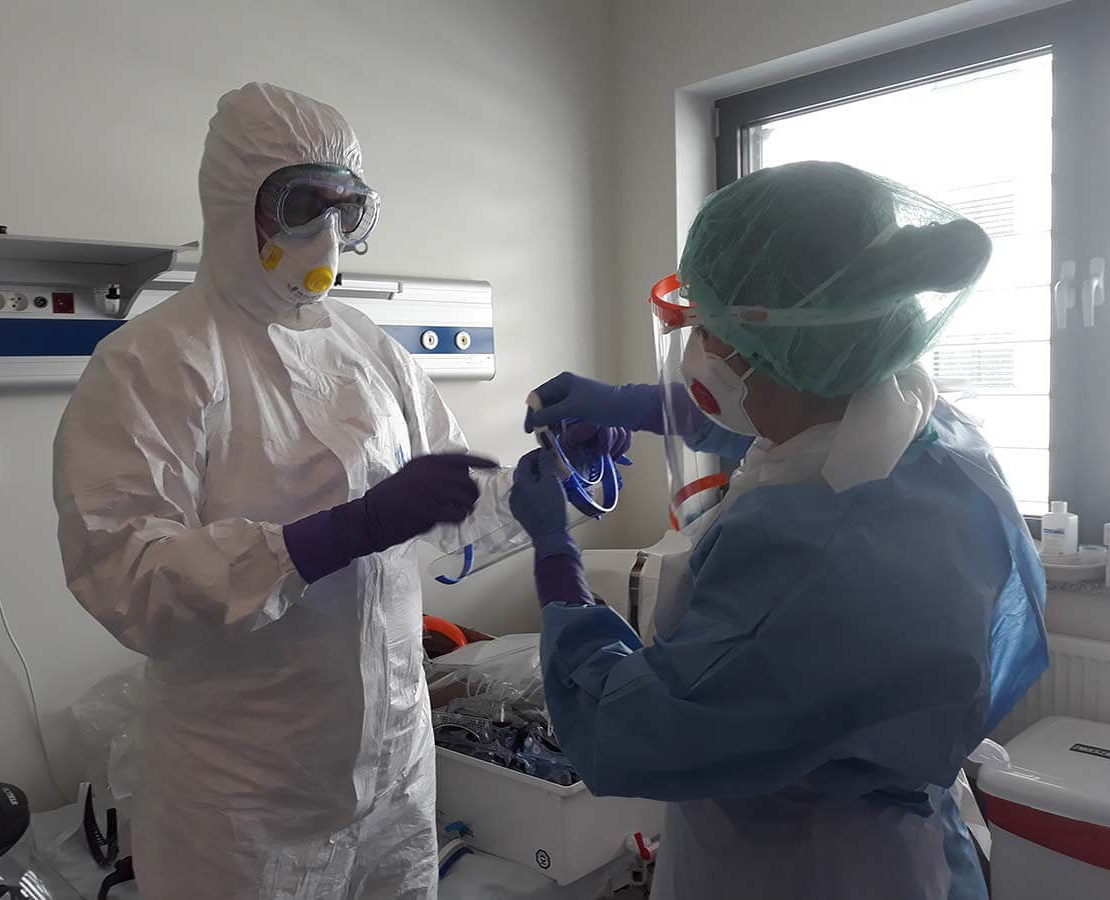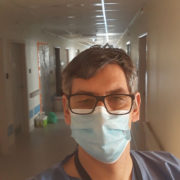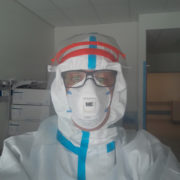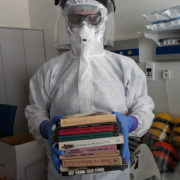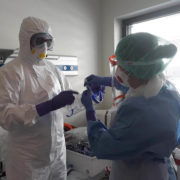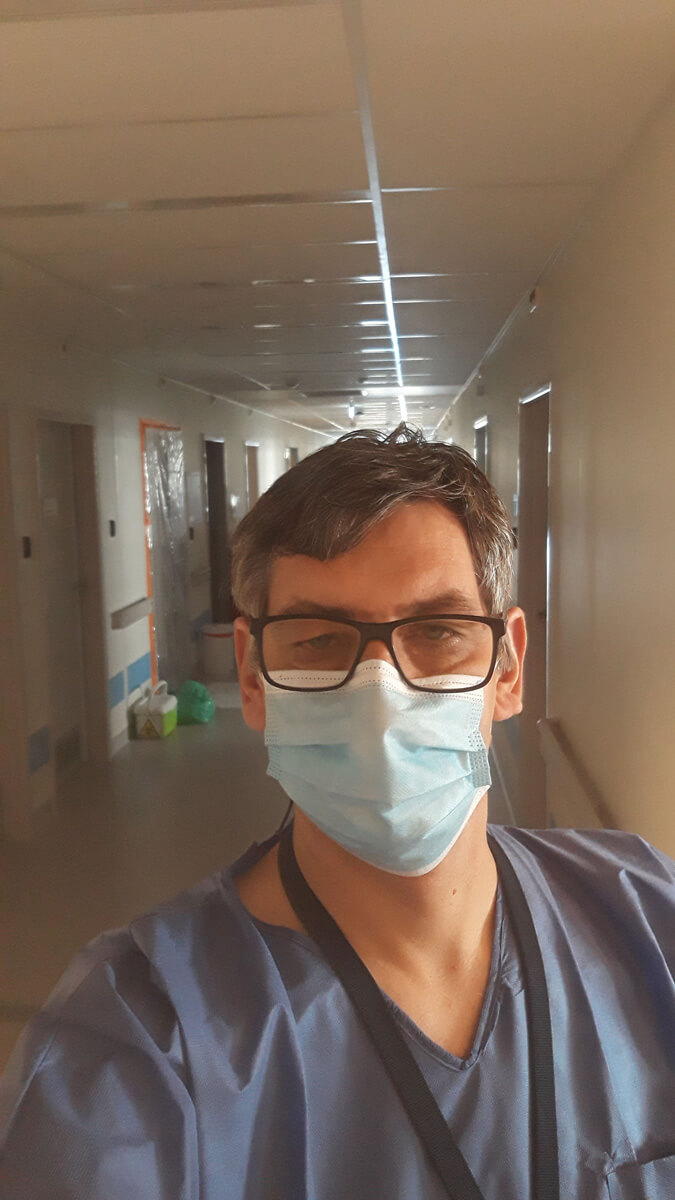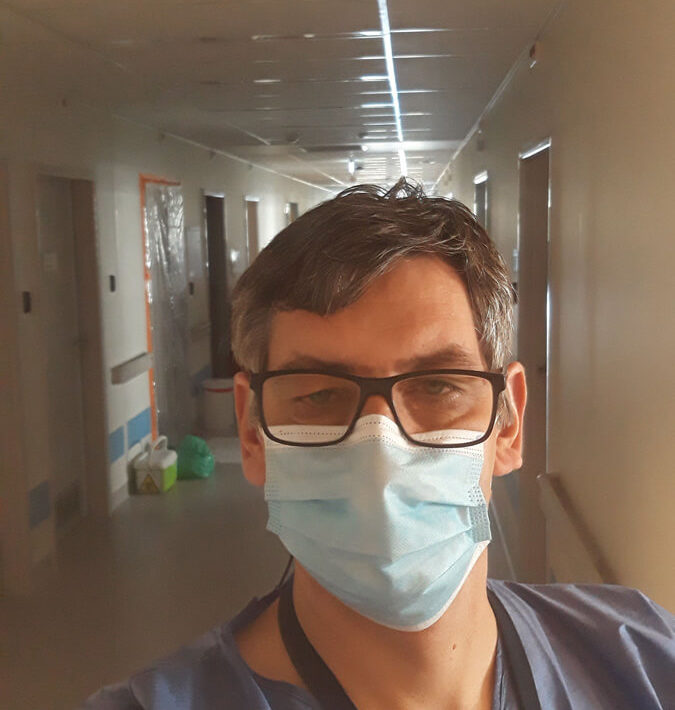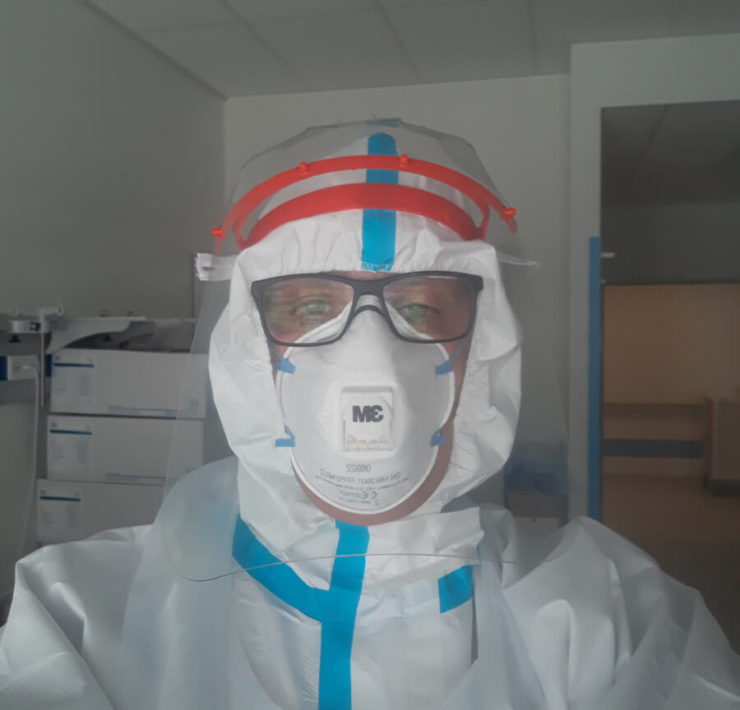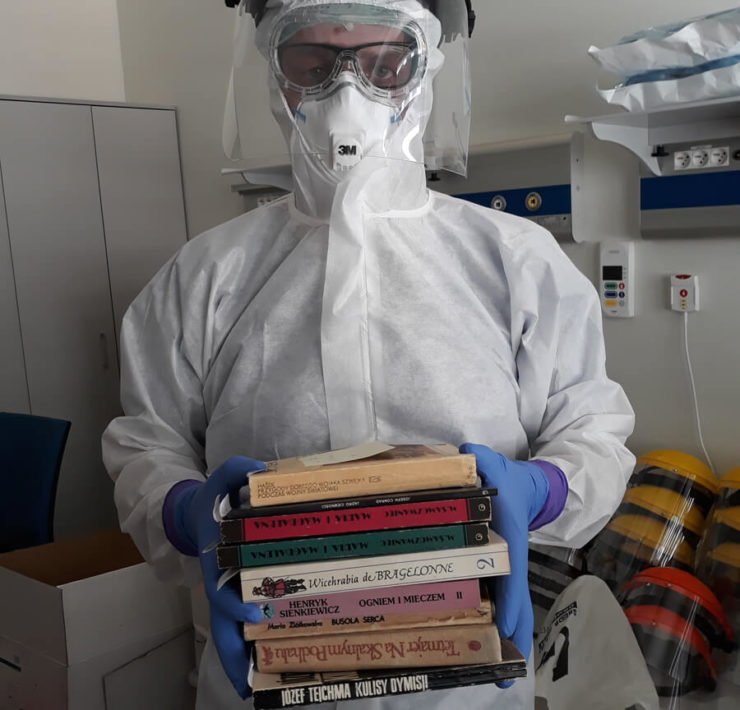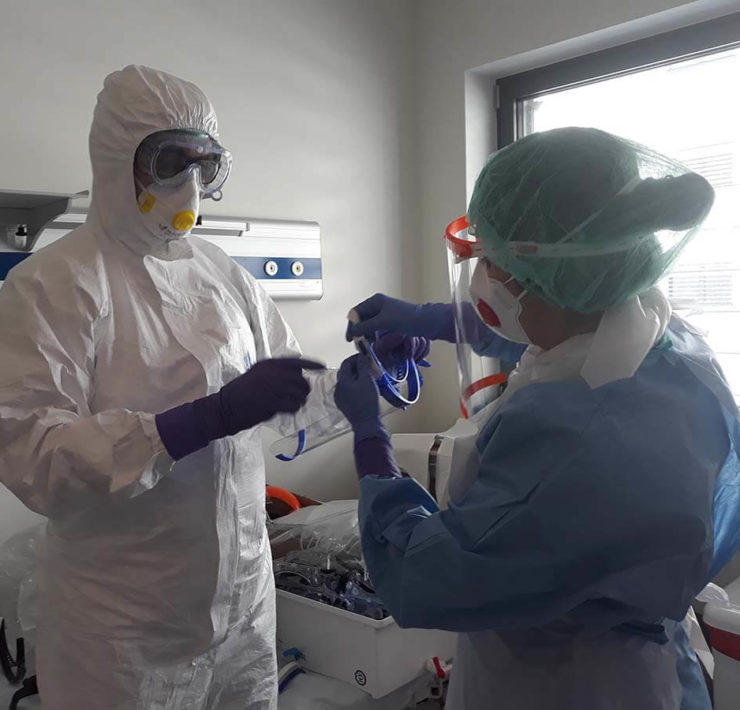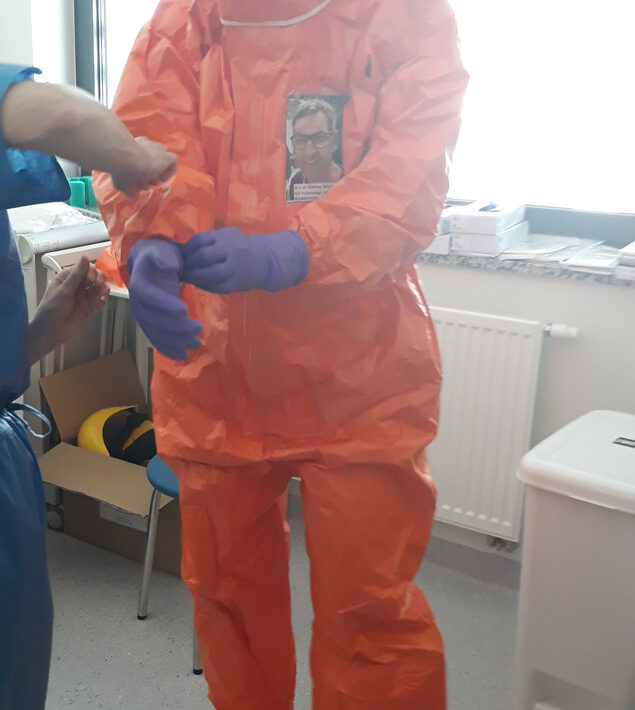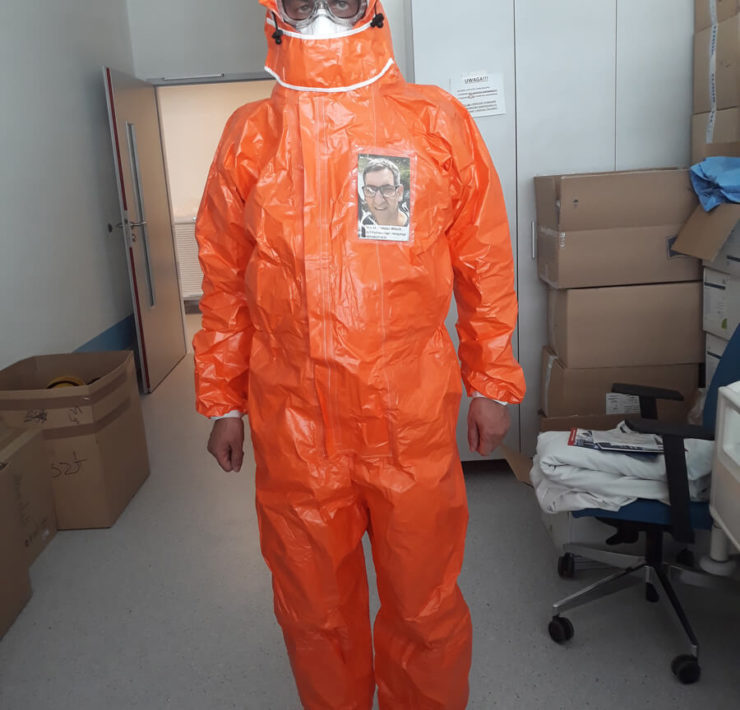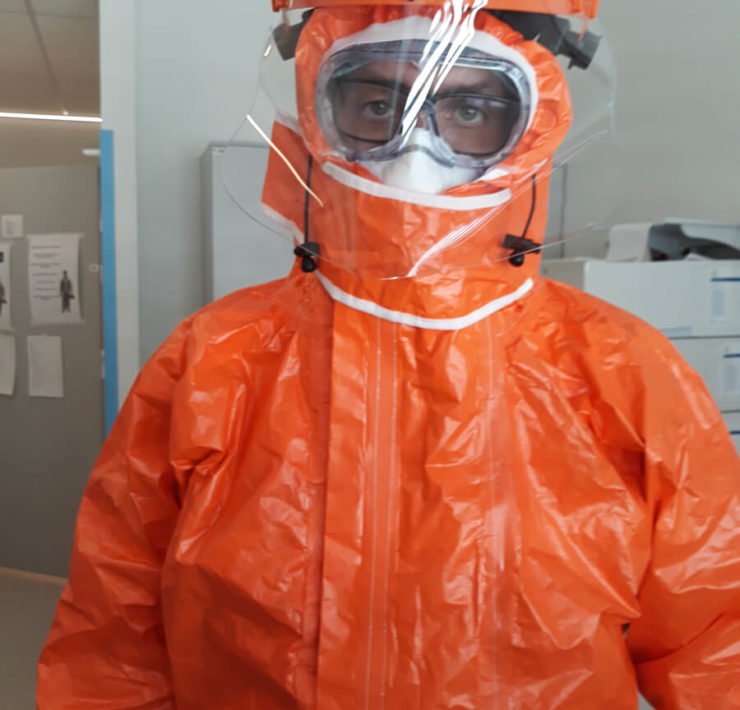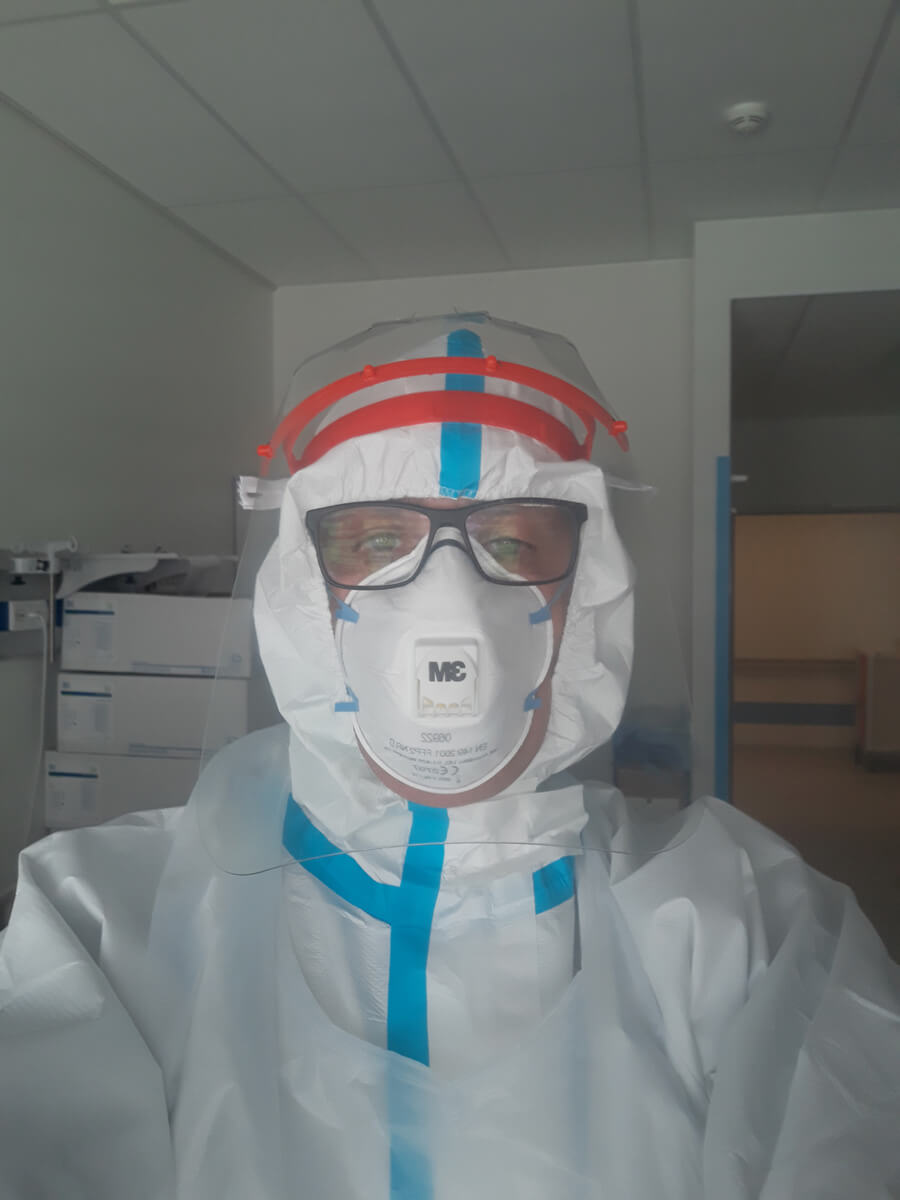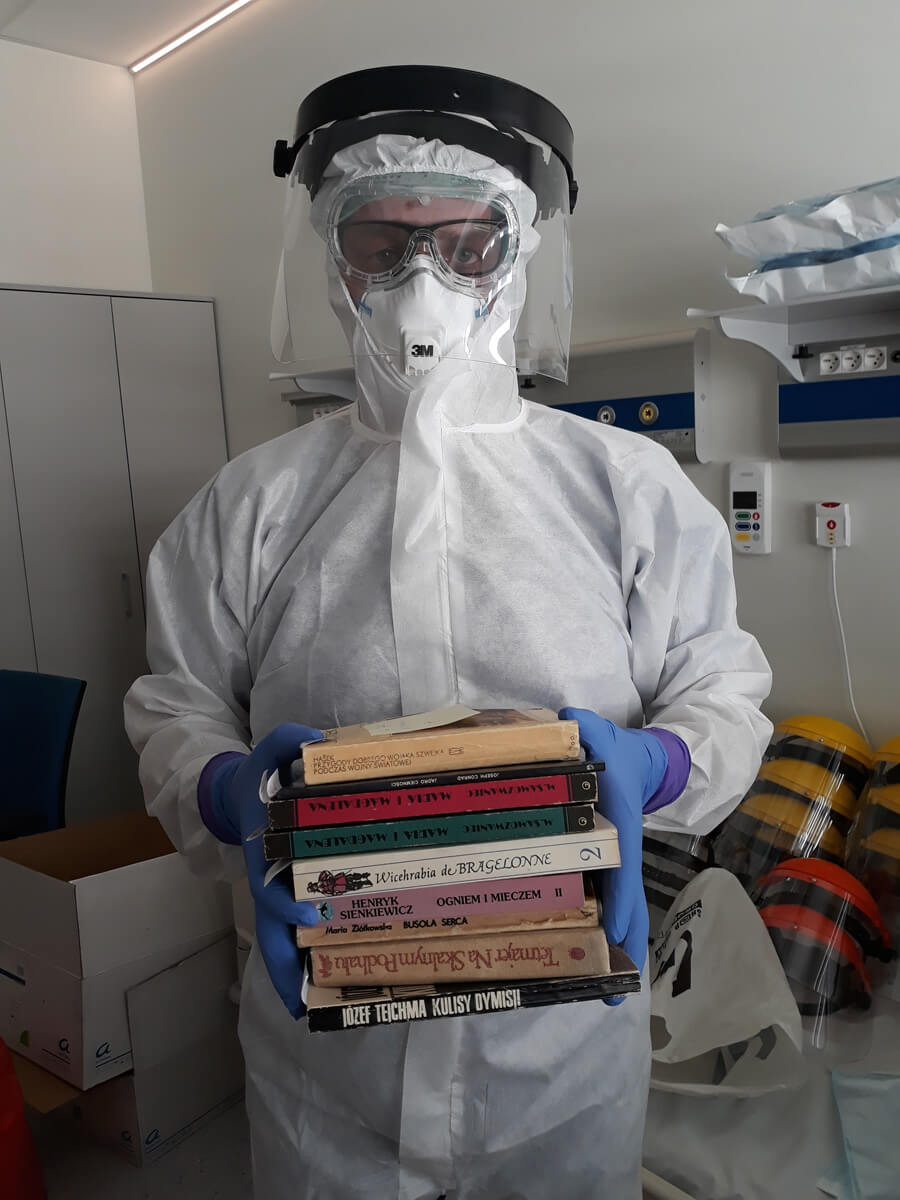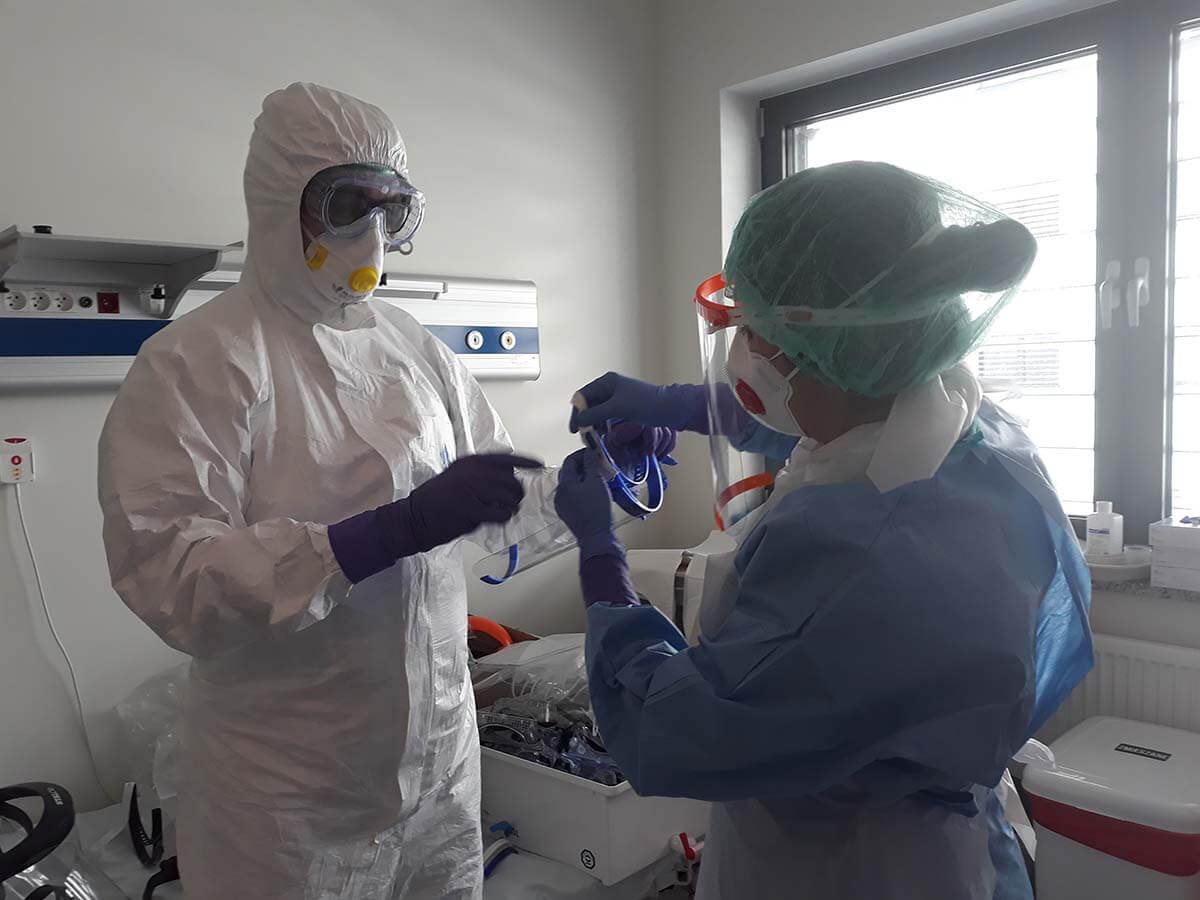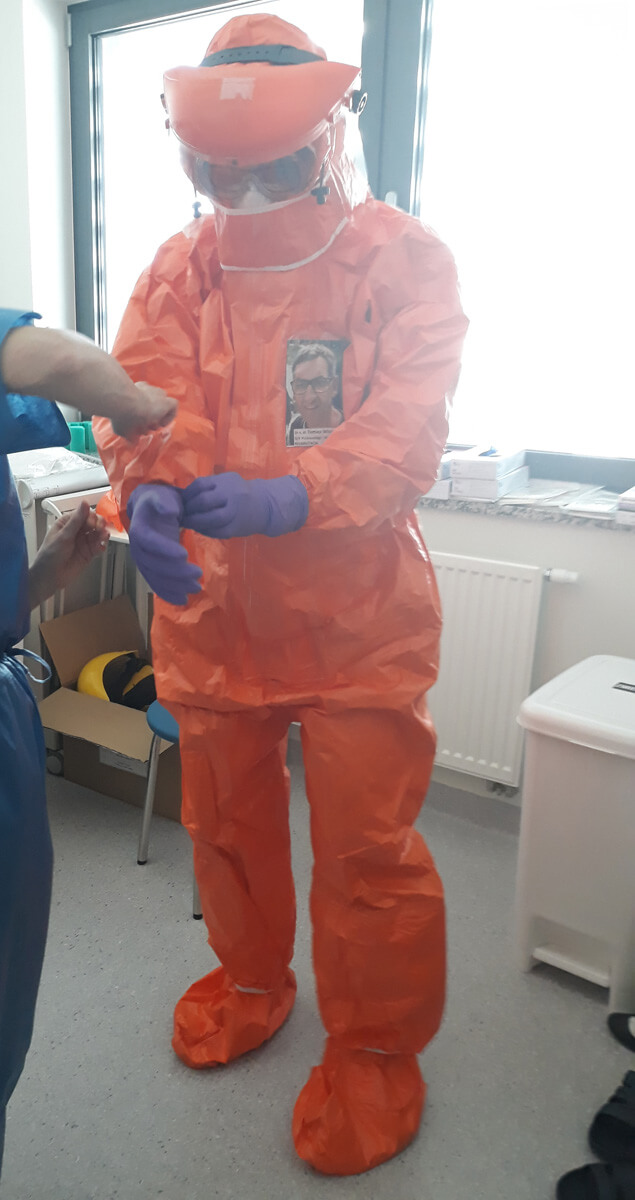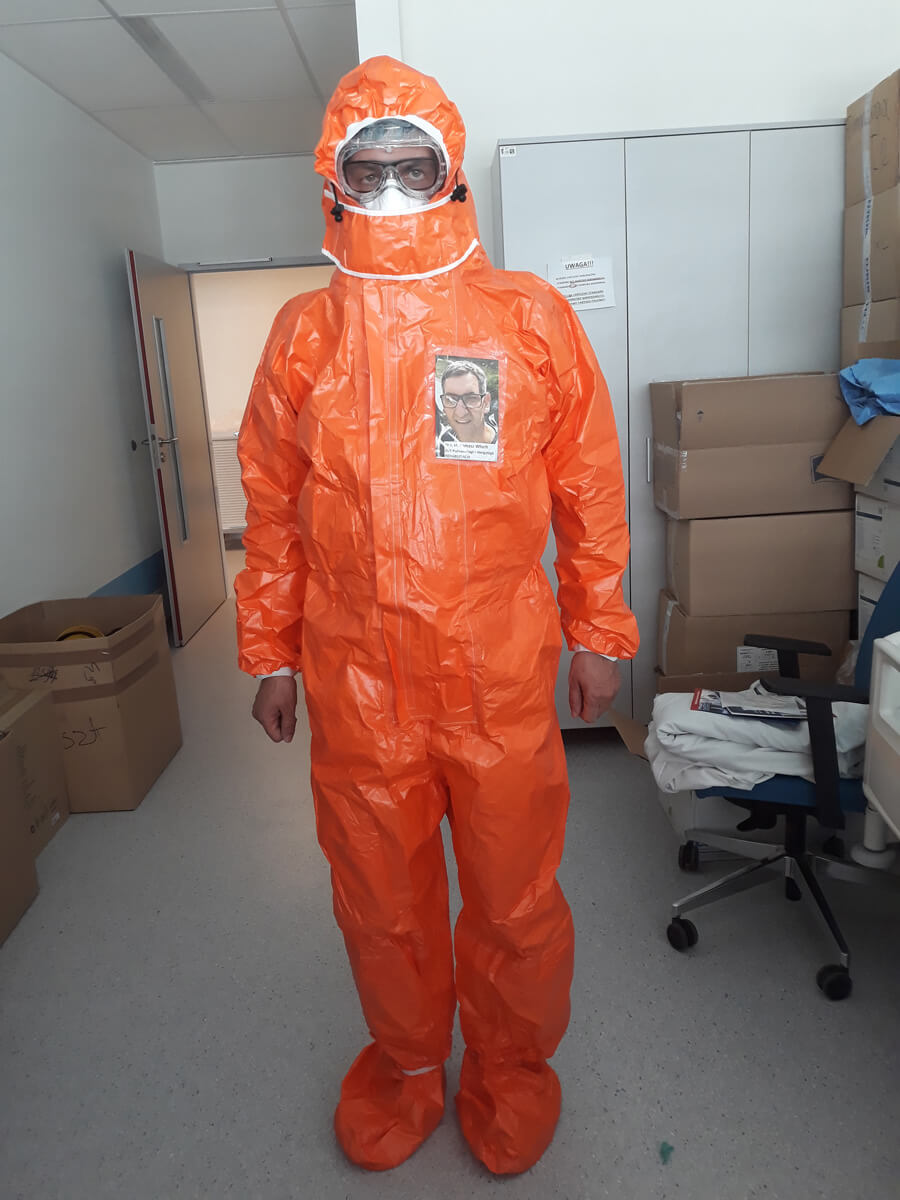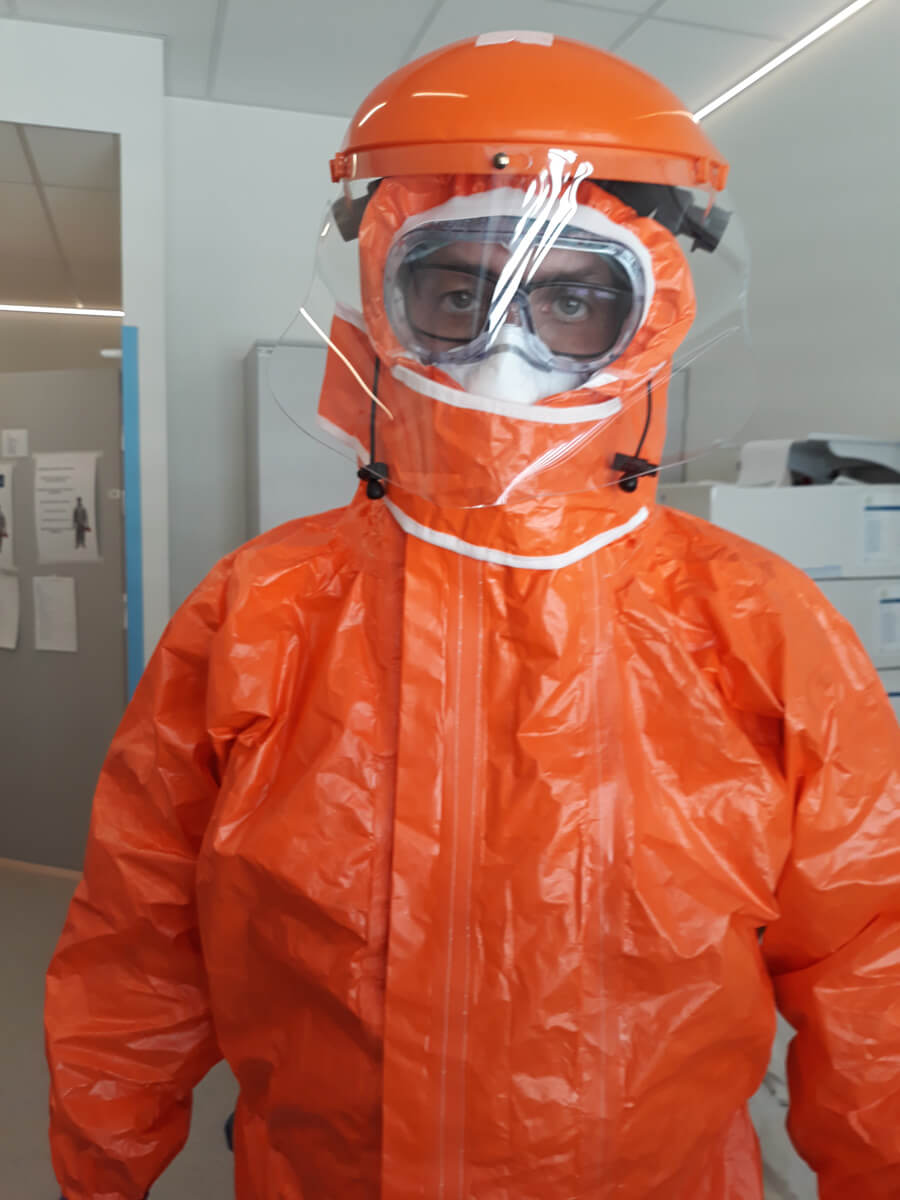Patients on COVID-19 wards keep asking for physiotherapy
Patients on COVID-19 wards keep asking for physiotherapy
Patients on COVID-19 wards keep asking for physiotherapy
Patients on COVID-19 wards keep asking for physiotherapy
Patients on COVID-19 wards keep asking for physiotherapy
Patients on COVID-19 wards keep asking for physiotherapy
After the coronavirus outbreak, I had no doubts that my place is in the team I work for every day. I have never thought about taking holiday or sick leave. I participated in organizing the COVID ward, which is why I am now perfectly familiar with its functioning and I know exactly where to find necessary equipment. In protective uniform and with fogged up glasses it can be difficult to find even such simple things like catheter extension tubing and stopcocks, which for example allow the patient to go to the restroom with oxygen.
Restoring dignity
A large group of our patients is relatively healthy-looking people who do not seem to require medical help. However, they spend most of their days lying in bed, in complete isolation. They are locked on 20 square meters for about three weeks and they cannot even take a walk along the hall. We are aware that many of these people may experience deterioration of health in any moment, as we are still unable to predict the course of this disease and possible complications. More and more coronavirus cases now include elderly people with numerous comorbidities, who acquire some form of disability in a very short time. Common observations are pressure ulcers or muscle contractures. Leaving these patients immobilized puts them at risk of never retrieving their motor skills from before the disease or, in the worst-case scenario, even dying. Owing to the work of physiotherapists, such patients become able to sit – which allows them to comfortably eat meals, they start changing their positions, reach for things, walk to the toilet or clean themselves. I know all of these seem to be minor activities but let us imagine being unable to do them every day! Not only does mobilizing such patients ameliorates their physical health, but it also improves their quality of life and allows them to regain dignity.
On the other hand, independent patients do not demand as much care from other healthcare professionals. And it is worth remembering that performing even the simplest procedures on COVID wards (pulling patients up in bed, helping them turn on the other side, cleaning, changing their clothes) requires much more effort than usually, since we all wear protective uniforms and safety glasses. It is becoming even more challenging with temperatures rising outside – spending several hours in a tight orange uniform is incredibly burdensome. So it is truly difficult to rehabilitate patients in such circumstances. I hope that the authorities responsible for providing us with protective clothes are aware of this fact and we will soon receive white uniforms which are lighter and more airy.
Like a psychologist
I try to have as much contact with patients as I can because, as a physiotherapist, I am able to spot a lot of details that might go unnoticed by nurses and doctors. I can tell if a patient is lying in an appropriate position, whether he or she has the right mattress, how a patient copes with changing positions, in what manner he/she eats or sits, if there is any redness of patient’s skin etc. Trained eye of a physiotherapist can be very helpful here.
On COVID wards, physiotherapists act partly as psychologists. I notice that patients need my support also in this area and I am therefore trying to make their hospital stay a little more bearable. Since they see me only in a huge orange costume and do not know how I really look like, I started carrying a photograph attached to my chest. It appears that some patients thought I was much older. And due to the fact that all this protective equipment distorts the sound of my voice, I also heard questions like: “So you’re not a woman?!”. Some also say I resemble Maciej Orłoś from a TV news program…
All of this is really nice and has contributed to shortening the distance between me and the patients.
Owing to some wonderful people, I have also managed to establish a small library on the ward. Patients order preferred books by SMS. Moreover, I have started a fundraiser among friends, which allowed us to obtain a dozen radio receivers and CDs, along with a number of audiobooks. Physiotherapists from other wards give me a lot of support in accomplishing these goals. I think that these initiatives make our patients feel more at ease.
When patients ask me “Will I recover from this?” I always explain to them that, since they sent a physiotherapists – that is me – it means everything is going in the right direction. A physiotherapist can very easily lift patient’s spirits up by demonstrating how his or her health condition is improving. Patients might be unaware that, although they are able to walk only a short distance, the time in which their saturation returns to resting values is shortening etc. This type of support is of great importance, especially now.
We must bear in mind that, due to isolation, a lot of patients on the other side do not receive support from their families and friends, many of them die alone.
The fact that my patients keep asking about a physiotherapist is a perfect proof of the crucial role physiotherapy plays on COVID wards. “The patient from room X has asked about you” is what I hear from doctors and nurses every day, while the patients themselves admit “If only you had been here more often, I would have probably walked by now”. It is a pity that a lot of decision makers in healthcare institutions and hospitals are unaware of the importance of physiotherapy. But it is not surprising at all if educated people still associate physiotherapy with massage rather than mobilizing patients – we still have a long road ahead of us. I won’t even mention our salaries – equal to the national minimum wage. It is sad and really humiliating.
Physiotherapists support each other
Work on a COVID ward entails many challenges. I lived in a hotel during the first three weeks and then moved to a summer house. I did all of this in order to protect my family and the hospital staff I work with. Inability to participate in family life is not easy, just like the incapacity to meet with my parents, whom I used to visit every second day. I find it very difficult, since they can only look at me from a distance. But this is the price I pay for working in the infectious diseases ward.
In this challenging circumstances, I receive a lot of support from my colleagues at work. We have created a WhatsApp group for physiotherapists employed in my hospital, where we regularly cheer on each other. Every day I am being asked: “How is the situation on the front line?”. We send each other links, articles, KIF regulations, information, advice, photos. It really helps and brings us together. I also recognize how involved the KIF authorities have been from the very beginning of the epidemic – I myself had a chance to take join efforts with a group of experts who prepared guidelines on physiotherapy for COVID-19 patients. It really builds me up that we are not being left alone in this situation. Anyway, we have been supported by KIF for several years now.
In the conclusion I would also like to explain the origin of my attitude towards patients. I live by Christian values, according to which protecting every human being is of utmost priority to me. People are worth making a sacrifice. So especially now, despite being aware of numerous dangers, I am entering the “other” infected side.


